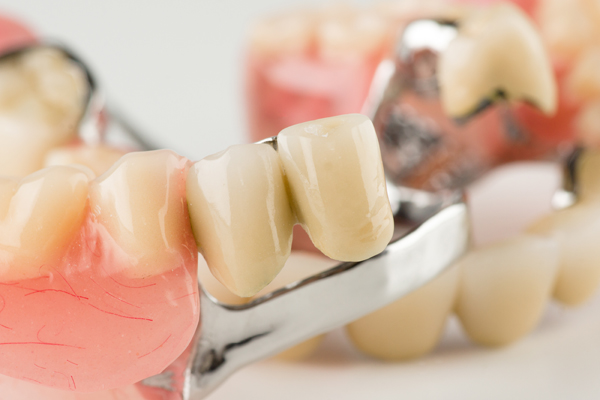How Often Do You Need an Oral Cancer Screening?

An oral cancer screening is often part of a routine dental examination. The frequency with which a patient should receive screenings depends on a number of considerations. These include a patient's age and the presence of any risk factors. The American Cancer Society recommends that patients over the age of 40 get a screening once a year but only recommends a screening once every three years for those between the ages of 20 and 40.
However, the Oral Cancer Foundation, as well as some dentists, recommends annual screenings for everyone over the age of 18 and more frequent screenings for people with risk factors. These include tobacco use, whether smoking or chewing, and excess alcohol consumption. Infection with human papillomavirus is another risk factor.
Why is oral cancer screening important?
Oral cancer is a treatable and preventable disease. Treatment is more likely to succeed with early detection. However, many cases are not diagnosed until they have reached advanced stages and spread to other areas of the body. Oral cancer can be difficult for patients to detect. Not only does it occur in an area that many people do not spend much time examining closely, but it often does not cause noticeable symptoms such as pain when it is in its early stages.
What is involved in oral cancer screening?
The dentist usually performs an examination of the inside of the mouth, looking for visual symptoms such as white or red patches and feeling for rough spots, thickening, bumps or lumps. The dentist may also feel the neck and throat.
Sometimes the screening also involves additional tests. The dentist may ask the patient to swish a special blue dye in the mouth. Any abnormal cells, including cancer and precancerous cells, will take up the dye, turning the area blue. Another test involves shining an ultraviolet light into the patient's mouth. Abnormalities will appear to change color under the light, becoming paler while normal tissues turn darker. Though not conclusive, these tests indicate to the dentist that there are areas of concern in the mouth that need further attention to either confirm or rule out a cancer diagnosis.
Once areas of concern have been identified, the dentist may take a small sample of cells from the problem area and send it away to a lab to be analyzed. Lab technicians will then perform a biopsy. This involves examining the cells under a microscope to identify any cancer or precancerous cells.
Oral cancer screening does not always have to take place in a dentist's office. A patient can perform a self-check at home. This involves examining the inside of the mouth in front of a mirror and looking under the tongue, around the gums and inside the cheeks and lips. Patients should look for symptoms such as unexplained bleeding or sores.
Conclusion
The Oral Cancer Foundation reports that the United States sees over 48,000 cases of oral cancer every year. A simple screening could potentially save a life. A dentist can assess a patient's risk factors and make a recommendation as to the frequency of oral cancer screenings required.
Request an appointment here: https://sexton-dental.com or call Sexton Dental at (740) 363-2080 for an appointment in our Delaware office.
Check out what others are saying about our services on Yelp: Read our Yelp reviews.
Recent Posts
For tooth loss, partial dentures are a good treatment option. This appliance not only revives your smile and appearance, but it can have health benefits as well. Your dentures allow you to chew effectively again and eat healthy foods. Replacing missing teeth will also help to prevent additional tooth loss and bone loss. A partial…
Understanding the key differences between a dentist and an orthodontist can help patients determine which specialist they need for their oral health care. While both professionals focus on maintaining and improving oral health, their roles, training, and areas of expertise differ significantly. A dentist typically handles general dental care, while an orthodontist specializes in diagnosing…
The purpose of dental onlay is to restore the appearance and function of the tooth following severe tooth decay or damage. The patient will be able to use their teeth like before. Unfortunately, dental restorations do not last forever and may fail eventually, either due to aging, injuries or accidents. Knowing what causes the dental…
If you experience soreness or pain in the jaw, you may want to talk with your dentist about TMJ treatment and whether the condition is causing your pain or other issues. Temporomandibular joint dysfunction (TMJ) is a serious condition that causes stiffness in the joints of the jaw, pain, soreness, swelling, and loss of movement.…


